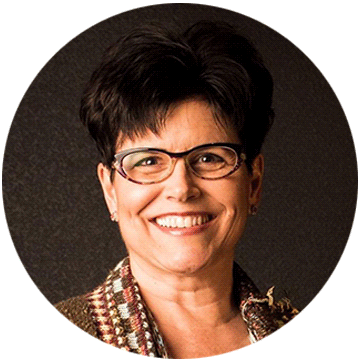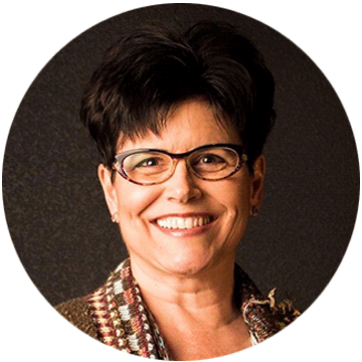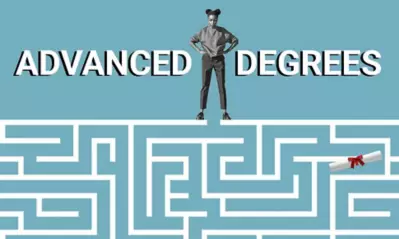Who wants a skills-mapped degree? Everyone.

Written by Laurie Davies

In today’s unpredictable labor market, skills matter to everybody.
College students want to know that what they’re learning applies to real-life skills — and they need to be able to articulate that to employers.
Employers are desperate for skilled workers. According to the Society for Human Resource Management , 75% of HR professionals who have difficulty recruiting talent blame it on a skills gap among job applicants.
And 70% of American workers say if their company gave them more opportunities to apply new skills , they would be more likely to stay throughout their career.
Skills are the new currency of the American worker right now. The problem for many job seekers is articulating which skills they actually have. Are you a critical thinker? A collaborator? Do you know about social media marketing ?
As a leader in delivering career-relevant education, University of Phoenix (UOPX) is leaning into the skills arena to help students answer these questions with confidence.
“We’ve always focused on skills, but we’ve measured them at the program level. After paying attention to the market and what employers were saying about skills, we’ve gone much deeper and mapped skills to the course level,” says University of Phoenix Vice Provost Doris Savron.
Why skills mapping matters
The workforce has been changing for some time as employers increasingly recognize skills gaps in workers. This change was accelerated by the pandemic and illustrated in UOPX’s Career Optimism Index® study 2023 .
For example, the Career Optimism Index reveals recent trends around what American workers and their employers think about the need for new skills in the workplace. Here’s a snapshot:
- 89% of employers say upskilling opportunities are provided frequently, in comparison to 61% of employees who say these opportunities are provided frequently.
- 52% of workers say they will need to learn new skills within the next year to continue their current job.
- 46% of workers say they are not as skilled as they need to be.
- 29% of Americans do not feel optimistic about opportunities for training, upskilling or learning new skills in their career.
American workers know what’s up. They see a skills mountain in front of them, and they may need help climbing it. Enter, University of Phoenix.
“We kept watching the market and what employers and students were saying about skills,” Savron says, adding that feedback all points to the same place — educational opportunities that align with in-demand skills .
So, back in 2015, University of Phoenix teamed up with labor market analysis leader Lightcast (formerly Emsi Burning Glass) to identify the skills currently in demand in the labor market, based on government labor sources and job postings. Then, the University worked with its experienced faculty to identify, tag and map those career-relevant skills in courses that aligned to Lightcast data or were identified as needs within the relevant industry.
The undertaking to map skills into each course is truly on the forefront of efforts to close the skills gap between students and employers and highlight how learners are acquiring skills as part of their progress. This can help prepare students for career opportunities and mobility.
The fine print
Built into UOPX’s courses are assignments, called “summative assessments,” that measure skills that are relevant to employers. Using these skills as inputs while maintaining academic rigor and attention to programmatic accreditation standards, the University has tailored its educational offerings to serve everyone across the board.
In other words, UOPX looked at four big questions:
- What do students need?
- What do employers need?
- What do accreditors require?
- How can the University build assessments that meet those demands?
Specifically, the University created a program blueprint that crosswalks Lightcast skills with experienced faculty input, Industry Advisory Council input, employer input, student input and programmatic standards. Skills are embedded within authentic summative assessments with detailed rubrics that show clear alignment from the academic content to the skill being acquired.
That’s a little bit of academic-speak, but basically, the result is that students — and current or future employers — can be confident that what students have learned can be applied to their job.
Digital badges in education
To further help students demonstrate and articulate the new skills they are acquiring in classes, University of Phoenix has introduced online badges, or digital badges, in some courses, which are aligned to career-relevant skills.
So, not only can bachelor’s and master’s students learn new skills with every five- or six-week class, but they can showcase those skills on their professional profiles, digital platforms or LinkedIn® profiles before they even graduate.
More than 200 verified digital badges are available through Credly digital badges . UOPX has issued more than 700,000 badges since September 2021 for skills obtained in undergraduate, graduate and professional development courses. Currently, 100% of associate, bachelor's and master's degree programs open for new enrollment are skills mapped. (Ninety percent of all UOPX programs and certificates open for enrollment are skills mapped.)
Savron says this is significant for students because they don’t have to wait for graduation to tout their achievements and can see what they earned through a skills profile. “The way we’ve built our programs, they get these skills credentials as they go,” she says.
In the nursing program, for example, with the recent natural disasters and the COVID-19 pandemic, nurse preparation for public emergency was identified as a need. “We looked at the credentials that exist in the marketplace around that skill set,” Savron says. “When matched up with the [public emergency] skills already in our courses, we are able to help students demonstrate and display, through badges, the skills they have acquired.”
As skills-embedded programs continue to gain momentum in education, it’s important to note that a thoughtful, truly relevant approach doesn’t happen in a vacuum.
University of Phoenix has been working with labor market data since 2015 and endeavoring to align skills with courses since 2019.
Bridging the skills gap
As a leader in connecting educational programs to in-demand workplace skills, UOPX is bridging the gap between what employers want and what students can deliver.
In the end, an institution-wide shift to a skills-ready, career-relevant mindset at UOPX will not only help students feel empowered toward their progress, but it will also help them demonstrate proof of learning to potential employers, current employers and colleagues.
“It is innovative. We’re trying to triangulate with students, employers and an institution,” Savron says. “It’s reflective of how University of Phoenix as an institution is a leader [answering] trends and anticipating trends.”
LinkedIn is a registered trademark of LinkedIn Corporation and its affiliates in the United States and/or other countries.

ABOUT THE AUTHOR
A journalist-turned-marketer, Laurie Davies has been writing since her high school advanced composition teacher told her she broke too many rules. She has worked with University of Phoenix since 2017, and currently splits her time between blogging and serving as lead writer on the University’s Academic Annual Report. Previously, she has written marketing content for MADD, Kaiser Permanente, Massage Envy, UPS, and other national brands. She lives in the Phoenix area with her husband and son, who is the best story she’s ever written.
This article has been vetted by University of Phoenix's editorial advisory committee.
Read more about our editorial process.
Read more articles like this:



